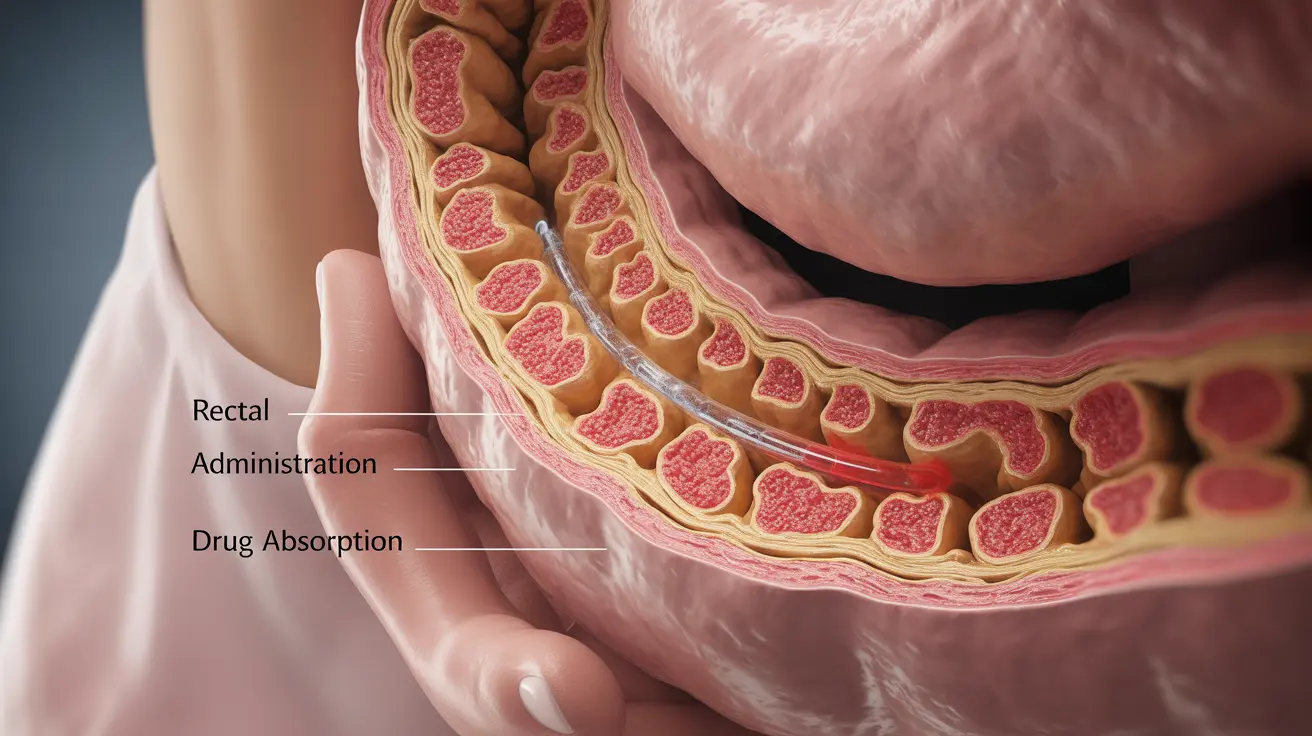Boofing, also known as rectal administration of substances, is a concerning method of drug or alcohol use that carries significant health risks. While this practice may be discussed in certain circles, it's crucial to understand its dangers and potential consequences for personal safety and well-being.
This article provides essential information about boofing, including its health implications, risks of overdose, and available treatment options for those seeking help. Our goal is to offer clear, factual information while emphasizing the serious dangers associated with this practice.
What Is Boofing and How Does It Work?
Boofing refers to the rectal administration of drugs or alcohol. This method of substance use involves inserting drugs or alcohol directly into the rectum, where they are rapidly absorbed into the bloodstream through the intestinal walls. This practice is particularly dangerous because it bypasses many of the body's natural protective mechanisms.
The intestinal tissue is highly absorbent, which means substances enter the bloodstream much more quickly than through other methods of administration. This rapid absorption can lead to unexpectedly intense effects and a significantly higher risk of overdose.
Health Risks and Dangers
Immediate Physical Risks
The practice of boofing can cause several immediate health complications:
- Tissue damage and tears in the rectal lining
- Severe chemical burns
- Internal bleeding
- Dangerous fluctuations in body temperature
- Rapid, potentially fatal overdose
Long-term Health Complications
Regular engagement in this practice can lead to serious long-term health issues:
- Chronic damage to intestinal tissue
- Increased risk of infections
- Compromised immune system
- Potential permanent damage to organ systems
- Higher risk of sexually transmitted infections
Recognizing Overdose Signs
Due to the rapid absorption rate associated with boofing, overdose risks are particularly high. Key warning signs include:
- Severe confusion or disorientation
- Difficulty breathing
- Loss of consciousness
- Seizures
- Dangerously high body temperature
- Irregular heartbeat
Treatment and Recovery Options
Immediate Medical Care
If someone experiences adverse effects from boofing, immediate medical attention is crucial. Emergency responders are trained to handle these situations without judgment, focusing solely on saving lives.
Long-term Recovery Support
For individuals seeking to stop this practice, several treatment options are available:
- Professional substance use counseling
- Addiction treatment programs
- Support groups and peer counseling
- Mental health therapy
- Medical supervision during withdrawal
Frequently Asked Questions
What does boofing mean, and how does it work for drugs or alcohol?
Boofing is the rectal administration of drugs or alcohol. The substances are absorbed directly into the bloodstream through the intestinal walls, leading to rapid and potentially dangerous effects. This method bypasses the body's natural filtering systems, making it particularly hazardous.
What are the main health risks and dangers of boofing drugs compared to other ways of using them?
Boofing carries significantly higher risks than other methods of substance use, including increased overdose potential, tissue damage, infections, and internal burns. The rapid absorption rate makes dosing unpredictable and dangerous, while the sensitive rectal tissue is easily damaged.
How do you recognize the signs of a drug overdose from boofing, and what should you do in an emergency?
Signs of overdose include severe confusion, breathing difficulties, loss of consciousness, seizures, and irregular heartbeat. If you suspect an overdose, call emergency services immediately. While waiting for help, keep the person in a recovery position and monitor their breathing.
Can boofing cause infections or permanent damage to your body, and what are the long-term effects?
Yes, boofing can cause serious permanent damage, including chronic tissue damage, increased susceptibility to infections, compromised immune function, and long-term organ damage. The practice can also lead to lasting changes in intestinal function and increased risk of various health complications.
What treatment options are available for someone who frequently uses boofing and wants to stop?
Treatment options include professional addiction counseling, rehabilitation programs, support groups, and mental health therapy. Medical supervision may be necessary during withdrawal, and a comprehensive treatment plan typically addresses both the physical and psychological aspects of substance use.




